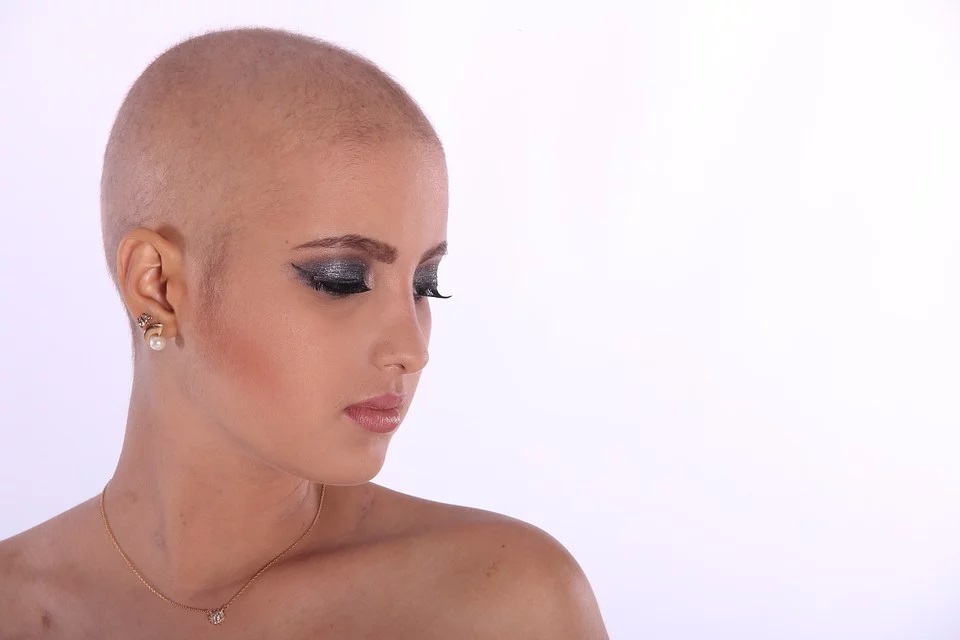For many cancer patients, one of the most distressing side effects of chemotherapy is hair loss (alopecia). Because hair is a central part of our self-image, losing your natural hair can be a stressful and emotionally devastating experience. Understanding the reasons for hair loss during chemotherapy and learning how to cope emotionally and physically ahead of time can facilitate your journey through chemo.
Why does chemotherapy cause hair loss?
Chemotherapy drugs target rapidly growing cancer cells. Some cells, including cells in the hair follicles, divide rapidly and are affected by drugs during chemotherapy. It’s important to keep in mind that hair loss does not occur with all chemotherapy drugs, and many cancer patients have different responses. While some patients notice no hair loss, others experience complete hair loss or a loss of thickness.
Preventing Hair Loss
In recent years, many cancer patients have asked whether preventing hair loss from chemotherapy is possible. Several techniques, including scalp cooling and compression, have been used with varied success.
Scalp cooling involves applying cool compresses to the head during chemotherapy to contract blood vessels around the scalp so the medication does not reach the hair follicles. However, scalp cooling aims to prevent chemo drugs from reaching the scalp, the chemo drugs may not reach the cancer cells in the area. Additionally, scalp cooling may be cold and uncomfortable for some patients.
Medications that promote hair growth, including Rogaine, do not significantly reduce hair loss and may cause unwanted side effects when used in combination with chemotherapy.
Coping Physically
During chemotherapy and after treatment, taking care of your hair may reduce hair loss and promote regrowth. If you have long hair, ask your stylist for a shorter hairstyle to encourage fullness and thickness and place less weight on the roots.
While some patients choose to shave their heads when hair begins to fall out, some prefer to allow their hair to fall out. Using a mild shampoo, brushing your hair gently with a wide-toothed comb, and limiting washes your hair to a few times per week can reduce hair loss.
Shopping for hair extensions, wigs, and headcovers ahead of time can also help you cope with hair loss. Finding the right hairpiece, like a clip-in ponytail extension, can give your own hair the look of fullness and thickness and can be styled into a bun or low ponytail. INH hair offers a wide variety of affordable ponytail hair extensions that can be worn in different ways, along with help from an expert colorist to ensure you’ll find the perfect match for your hair color and texture.
Coping Emotionally
It’s normal to experience a wide range of emotions—including anger, depression, and hopelessness—while losing your hair. Some cancer patients experience low self-esteem and damaged self-image, and others are concerned that their hair loss will affect relationships with loved ones. Talking about your concerns with loved ones ahead of time and seeking emotional support from a peer support group or self-empowerment group can help you cope emotionally with hair loss.
Therapy can also help you express your concerns toward hair loss and self-confidence. With the help of the down-to-earth therapists at the Baltimore Therapy Group, you can create a personalized treatment plan to focus on your mental health and cope with hair loss. Whether you’re interested in individual therapy, marriage counseling, or group therapy, Baltimore Therapy Group offers the ability to express yourself, feel understood, and gain valuable insights.
Hair is an integral part of self-image—and losing your hair can lead to lowered confidence and damaged self-image. Preparing for hair loss ahead of time and taking steps to cope physically and emotionally can help ease the distress of losing your hair during and after treatment.
